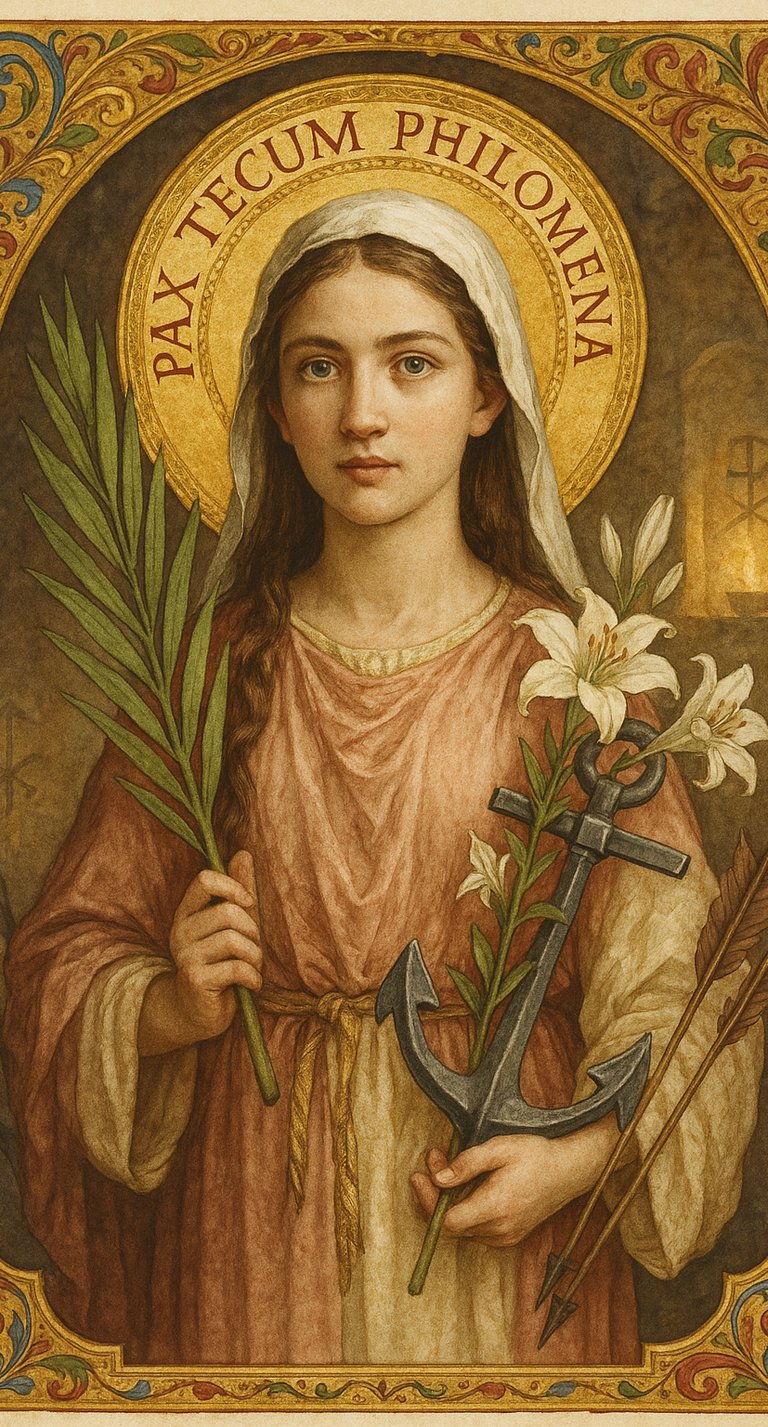St. Philomena: The Wonder-Worker of the 19th Century
Feast Day: August 11 | Patroness: Youth, purity, babies, and hopeless causes #saintoftheday #haloandlightstudios
Halo & Light Studios
8/13/20252 min read


Click Link for a reel of Daily Dose of Saints and Faithful Art:
https://youtube.com/shorts/KK1KkQ0L3cE?feature=share
In the summer of 1802, deep in the Catacombs of Priscilla in Rome, workers made a remarkable discovery. Behind sealed terracotta tiles bearing the words Pax Tecum Philomena — “Peace be with you, Philomena” — lay the remains of a young girl, perhaps only thirteen. Alongside the inscription were symbols: palm branches for martyrdom, arrows for suffering, and an anchor for steadfast hope. The style of the tomb suggested the early 4th century, the era of the Great Persecution under Emperor Diocletian.
No written biography had survived the centuries. Yet her witness began to speak through miracles. In 1805, her relics were transferred to the small town of Mugnano del Cardinale, Italy. Almost immediately, cures and wonders were reported — healings from paralysis, deliverance from danger, and conversions of hardened hearts. The faithful began to call her La Piccola Santa — “The Little Saint” — and devotion spread like wildfire.
Accounts from private revelations, particularly to Mother Maria Luisa di Gesù, offered a possible glimpse of her story: Philomena was said to be a Greek princess who consecrated her virginity to Christ. Brought to Rome, she was pressured to marry Emperor Diocletian. When she refused, she endured scourging, arrows, and drowning — each time miraculously preserved — until finally, she was beheaded for her fidelity to Christ.
By the mid-19th century, St. Philomena was known as the “Wonder-Worker of the century.” St. John Vianney, the Curé of Ars, credited countless miracles in his parish to her intercession. Blessed Pauline Jaricot, gravely ill, was healed after praying to her. Pope Gregory XVI approved public devotion to her, despite the mystery surrounding her earthly life.
Her appeal remains powerful because she embodies the paradox of Christian victory: unknown in history, yet unforgettable in Heaven. She reminds us that the measure of our life is not in earthly recognition but in eternal fidelity.
As the palm on her tomb once proclaimed, she is a martyr — but also a sister for anyone who feels small, hidden, or powerless. Through her intercession, God still shows that no cause is too hopeless for His mercy.
Prayer to St. Philomena:
O faithful Virgin and glorious Martyr, St. Philomena, beloved of God, be my advocate before His throne. Obtain for me purity of heart, steadfast faith, and the courage to endure all for love of Christ. Amen.
